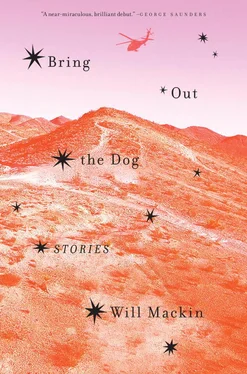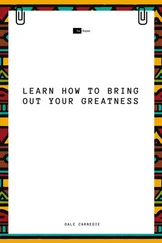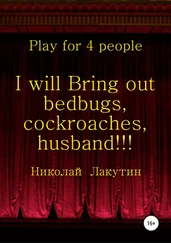Will Mackin - Bring Out the Dog
Здесь есть возможность читать онлайн «Will Mackin - Bring Out the Dog» весь текст электронной книги совершенно бесплатно (целиком полную версию без сокращений). В некоторых случаях можно слушать аудио, скачать через торрент в формате fb2 и присутствует краткое содержание. Город: New York, Год выпуска: 2018, ISBN: 2018, Издательство: Random House Publishing Group, Жанр: prose_military, на английском языке. Описание произведения, (предисловие) а так же отзывы посетителей доступны на портале библиотеки ЛибКат.
- Название:Bring Out the Dog
- Автор:
- Издательство:Random House Publishing Group
- Жанр:
- Год:2018
- Город:New York
- ISBN:978-0-812-99564-0
- Рейтинг книги:5 / 5. Голосов: 1
-
Избранное:Добавить в избранное
- Отзывы:
-
Ваша оценка:
- 100
- 1
- 2
- 3
- 4
- 5
Bring Out the Dog: краткое содержание, описание и аннотация
Предлагаем к чтению аннотацию, описание, краткое содержание или предисловие (зависит от того, что написал сам автор книги «Bring Out the Dog»). Если вы не нашли необходимую информацию о книге — напишите в комментариях, мы постараемся отыскать её.
Bring Out the Dog — читать онлайн бесплатно полную книгу (весь текст) целиком
Ниже представлен текст книги, разбитый по страницам. Система сохранения места последней прочитанной страницы, позволяет с удобством читать онлайн бесплатно книгу «Bring Out the Dog», без необходимости каждый раз заново искать на чём Вы остановились. Поставьте закладку, и сможете в любой момент перейти на страницу, на которой закончили чтение.
Интервал:
Закладка:
THE UNLIT SIGN out in front of the hotel read, WELCOME MAN WILL NEVER FLY. The parking lot was full of cars. Wind ripped off the ocean, around the building, and stung my face. Inside, the lobby was dark, the front desk vacant. There was no BE BACK SOON sign, no bell to ring.
“Hello!” I yelled.
“I’ll go find someone,” Moby said.
As soon as he was gone, Reed said, “That guy’s a piece of work.”
“Yup,” I said.
The two of us dripped on the carpet.
“I can’t do another deployment, man. I just can’t.”
“I know,” I said.
“Maybe we can line something up at Dare for next week. Bring in some Strike Eagles from Andrews, some Harriers from Cherry Point. We could get Moby, like, a hundred controls in a day.”
“It’s worth a try,” I said, knowing full well that nobody was going to sign up for anything this close to Christmas.
Moby returned, followed by an old man in a tuxedo.
“This guy’s Amish or something,” Moby said.
The old man carried a tumbler of what looked like bourbon. He wore a small tux with a crooked bow tie. He smiled at us.
“You got any rooms?” Reed asked.
The old man shrugged. “I don’t work here,” he said.
Moby reached over the front desk and picked up a phone. “Hello?” he said. “Anybody out there?”
“So,” the old man said. “I hear you’re Marcinko’s boys.”
Commander Richard Marcinko, U.S. Navy, retired, was the founder of our little top secret unit.
“What’d you tell him?” Reed asked Moby.
Behind the front desk now, Moby was flipping light switches, jiggling mice. “I told him the truth. Sue me,” Moby said.
“My name’s John,” said the man in the tux. “I worked with Dick Marcinko back in sixty-eight, in Laos. He called me in on slopes humping the Ho Chi Minh Trail, and I dropped beehives on them from my F-4.”
Beehives were, like, poison dart bombs. They were banned by the Geneva Convention.
I pointed at John’s tux. “What’s the occasion?” I asked.
“I’m president of the Man Will Never Fly society. All of us are what you’d call pilots, or former pilots. We get together every year, on the anniversary of the Wright Brothers’ imaginary achievement, to celebrate the myth of man-made flight.”
“But you flew the F-4,” Reed said.
“That’s what they tell me,” John said.
“I used to fly Queers,” I said.
“I’m sorry to hear that,” John said.
A hotel employee appeared, wearing a flowered vest that matched the lobby’s carpet. He was soaked. “We almost have the generator online, sir,” he said to John.
“Wonderful,” John said. “How much longer?”
“Just a few minutes.”
John opened his arms wide and a little booze sloshed out of his glass. The way he closed his eyes and inhaled, I thought he was going to break into song. Instead, he asked, “Would you gentlemen do me the honor of joining us for dinner?”
We followed John down an emergency-lit corridor toward the hotel ballroom.
“What about hot air balloons?” Reed asked.
“I believe in hot air,” John said.
“And birds?” Moby asked.
“Birds are not men.”
John stopped us before a crack in an accordion partition, on the other side of which was the ballroom. Through the crack I could see candles burning. I could hear voices and laughter.
“These people you’re about to meet,” John whispered. “They all look fine, but there’s something wrong with them. You could say I was put in charge to keep an eye on things.”
John opened a wider space in the partition, waving Reed and Moby through. He touched a finger to my chest to stop me from following.
“How long has it been since your last flight?” John whispered. His breath smelled like fuel.
“Six years,” I said.
“Have you had that dream yet where you’ve forgotten how to land?”
“No,” I said.
John looked toward the red exit sign at the far end of the hall. “Well, that’ll come,” he said.
Inside the ballroom, dozens of well-dressed couples sat at however many candlelit tables. Tiny flames turned their faces orange.
“What’s the good word?” a round-faced man shouted at John.
“That knucklehead’s an astronaut,” John said to us, and everybody laughed.
“Who are your friends?” asked a lady in a red dress.
“Patience,” John said.
The ocean sprayed against the picture windows that reflected the candlelit ballroom. We followed John to the center of the tables, where he stopped.
“Comrades,” John said. “I was told, just a few minutes ago, that power would be restored in a few minutes. And…” He snapped his fingers. “Something else…”
“Your friends !” said the lady in the red dress.
“Of course,” John said. “How could I forget our honored guests, who believe in flying machines, but we won’t hold that against them.”
“Bullshit!” the astronaut yelled.
“Bullshit, indeed,” John said. “But they are otherwise fine, upstanding young men.”
Waves crashed outside, threatening to shatter the picture windows. Reed, Moby, and I stood with our arms crossed in the dark.
“You’ll see for yourselves in just a minute,” John said.
Kattekoppen
We went through a number of howitzer liaisons before Levi. His predecessors, none of whose names I remember, were able to build artillery plans in support of our night raids. They were skilled enough to communicate these plans to the soldiers who would fire the howitzers. In fact, any one of them would’ve been perfectly fine as a liaison to a normal organization. But ours was not a normal organization. Sometimes what went on gave normal men pause. And if they paused, we’d send them back and demand a replacement. After a few rounds of this, the lieutenant in charge of the howitzer battery said, “Enough.”
Which was understandable, but not acceptable. So, on our first night without a mission, Hal and I took a walk to the howitzer camp. We set out from the dog cages under a full moon, which seemed to cast X-rays rather than light. Thus, the dogs’ ribs were exposed, as was the darkness below the ice on our steep climb uphill. The steel barrels of the howitzer guns were visible as shadows, and the plywood door of the howitzer camp was illuminated as if it were bone. Hal knocked on the door with an ungloved fist.
The lieutenant answered. “Hey, guys,” he said.
Hal pushed past him into the empty room. “Get your men in here,” he said.
The room filled with soldiers feigning indifference, but every one of them had ideas about the war. The variety of ideas among soldiers developed into a variety of ideas among units, which necessitated an operational priority scheme. As SEAL Team Six, we were at the top of that scheme. Our ideas about the war were the war. Therefore, we could knock on any unit’s door in the middle of the night, assemble the soldiers in a room, and tell them what was what.
On this night, Hal told them that we needed a goddamn liaison. Then he scanned the room for one. Levi’s height—he was by far the tallest man there—made it easy for Hal to point and say, “How about you?”
You put a normal man on the spot like that and he’ll get this look. Levi did not get that look. This may have been, at least partly, because Levi was Dutch, born and raised. Why he had joined the United States Army was anyone’s guess.
“Yes,” Levi answered. “I am available. Howeffer, I have a pregnant wife in Texas, and in two weeks’ time I would like to go there for the burt of my son.”
Читать дальшеИнтервал:
Закладка:
Похожие книги на «Bring Out the Dog»
Представляем Вашему вниманию похожие книги на «Bring Out the Dog» списком для выбора. Мы отобрали схожую по названию и смыслу литературу в надежде предоставить читателям больше вариантов отыскать новые, интересные, ещё непрочитанные произведения.
Обсуждение, отзывы о книге «Bring Out the Dog» и просто собственные мнения читателей. Оставьте ваши комментарии, напишите, что Вы думаете о произведении, его смысле или главных героях. Укажите что конкретно понравилось, а что нет, и почему Вы так считаете.












